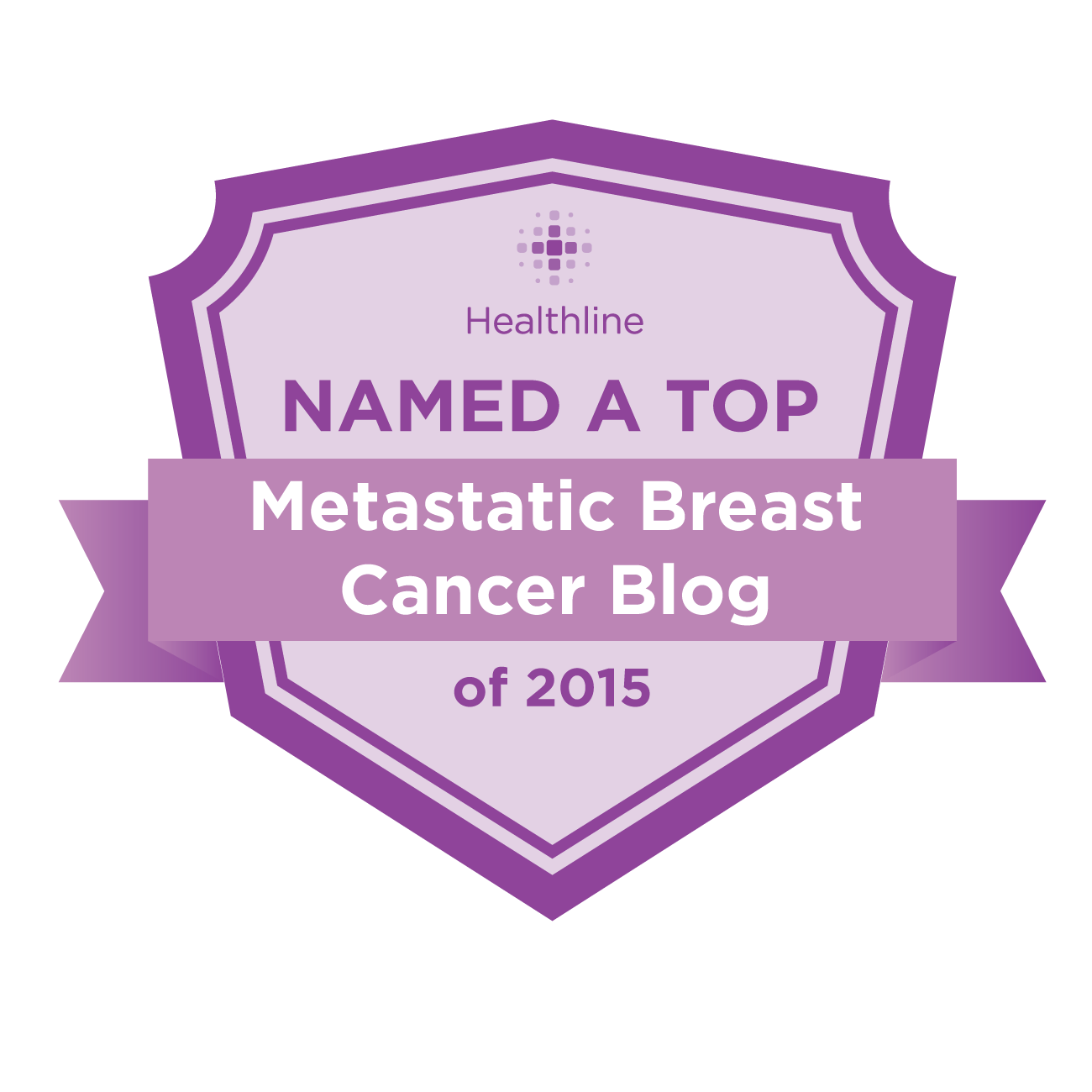What I learned, in a nutshell:
- An analysis of the Metastatic Breast Cancer Alliance Landscape revealed that only 7% of the $15 billion funding all breast cancers supports research into metastatic breast cancers. That seems very low to me.
- 108 Americans die of metastatic breast cancer daily, according to the above document. 40,000 die in one year. You can imagine how big an impact this had on the 300 conference participants. Over the three days of the conference, all of us represented these dead.
- The American Cancer Society (ACS) is often quoted as saying that only 2% of all National Cancer Institute research into ALL cancer supports research into every kind of metastatic cancers, not just metastatic breast cancers. This percentage is even lower. I've asked the ACS to verify.
- We need to increase awareness of metastatic breast cancer in the vernal breast cancer population. Maybe we are the worst nightmare for women with early stage breast cancer, but research shows that about 30% of them will end up with mets. We need to change the message of "fighting" to focus more on "living with" advanced breast cancer.
- They told us "Advocacy is the application of pressure and influence on people and institutions that have the power to give you what you want."
-------------
Here are some good Twitter hashtags on metastatic breast cancer:
#don'tignorestageIV (Beth Fairchild)
#BCSM (Metastatic Breast Cancer Social Media)
#livingwithmets (LBBC)
------------
METAvivor is the only all-volunteer run nonprofit organization directly supporting research into stage IV breast cancer.
Metastatic Breast Cancer Network funds research, advocacy and provides support for women living with mets. I think we might be able to include Komen here; more on that later.

----------------
For the session on pain, fatigue and insomnia, Dr Don Dizon began by quoting Eleanor Roosevelt: "You must do the thing you cannot."
Cognitive behavioral therapy may help treat neuropathy. I'll ask Dr G about this one.
Ginseng and guarantee may provide some benefit.
Medical marijuana or hash oil may help with pain and insomnia.
Pets contribute to insomnia. If they're taking up the bed, you possibility of poor sleep may increase.
Get out of bed if you can't sleep. Read, go online, watch TV - but get out of bed.
Study relaxation training (i.e., yoga breathing).

Dr D used these last two phrases eloquently.
- To live a better life, be Practical, Realistic, Optimistic.
- Optimism is a clinical trial.
If Dr G ever stopped practicing medicine, I would move to Boston for Dr Dizon to treat me. He was the best speaker at the conference.
---------------
Julie Lanford, a cancer dietitian, led the final session. Among many things, she talked about the need to eat more of the following in the form of whole foods, not supplements:
- probiotics (kefir, yogurt, sauerkraut, and sourdough bread)
- prebiotics (beans, oats, Jerusalem artichokes, asparagus, and bananas)
- omega 3 fats (soybeans, walnuts, flax seeds, fatty fish and canola oil)
She encouraged us to have our vitamin D levels checked regularly.
And finally, if you eat a new food three times or more per week, you've created a new food habit.








No comments:
Post a Comment